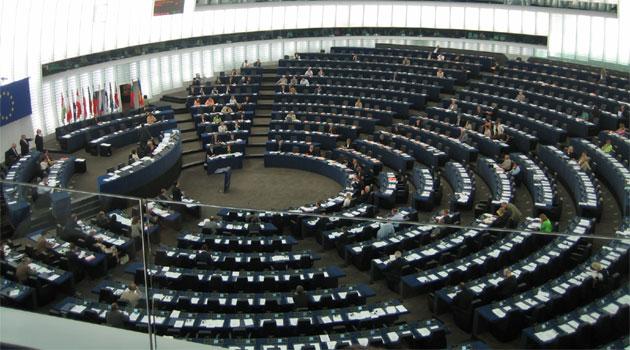Jewish organizations fear rise of anti-Semitism in the EU during elections

The eventual success of right-wing extremist parties in the EP elections could lead to a strengthening of anti-Semitic rhetoric in Europe and could contribute to increased attacks against Jewish people. Rabbi Andrew Baker, the Personal Representative of the OSCE Chairperson-in-Office on Combating Anti-Semitism, warned of such a possibility on Monday.
According to Baker, anti-Semitic sentiment can be observed in all EU countries today, manifesting itself differently in different places. "European right-wing extremist parties have included anti-Semitic positions in their programs. None of them is free of anti-Semitism, even if it’s not a main point of their program," he said recently at a meeting of American and European Jewish organizations in Berlin.
Baker says anti-Semitism can be traced in all European countries today. Its most frequent manifestations are anti-Jewish texts spread online or efforts to deny or relativize the Holocaust.
In many countries, however, physical assaults against Jewish people or efforts by some organizations to abolish traditional Jewish rituals can be observed. Baker includes a recent attempt by German child protection organizations to ban the ritual circumcision of boys as one example.
"We are encountering an attack on the basis of our faith, a violation of our freedom of religious worship," Baker said of the anti-circumcision movement. Such manifestations of anti-Semitism differ depending on the EU Member State involved.
In countries that were once under the Soviet sphere of influence, Baker says an older type of anti-Semitism is still displayed, related to the dissemination of stereotypes about Jewish people. Such stereotypes are accompanied by hateful rhetoric which can be heard in various parts of society, but physical assaults on Jewish individuals are rare.
In West European countries the situation is different, with more violent anti-Semitic incidents occurring. Baker says this is partially due to the radicalization of Muslim immigrants in those countries.
The fact that the Middle East peace process has made only minimal progress also influences the situation. Baker says many Europeans do not perceive any difference between Israel and the Jewish communities in their own countries and take the side of the Palestinians in the Middle East conflict.